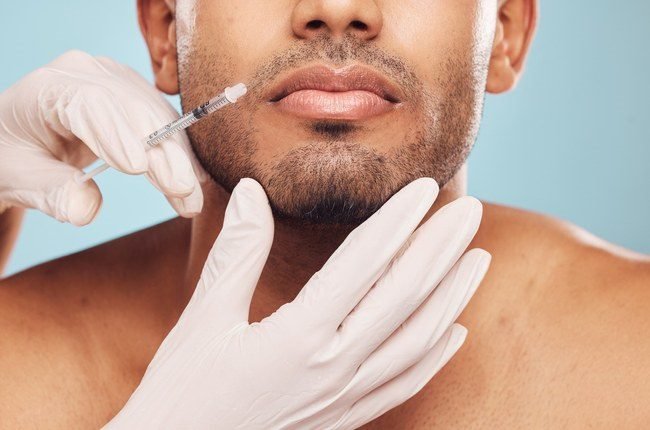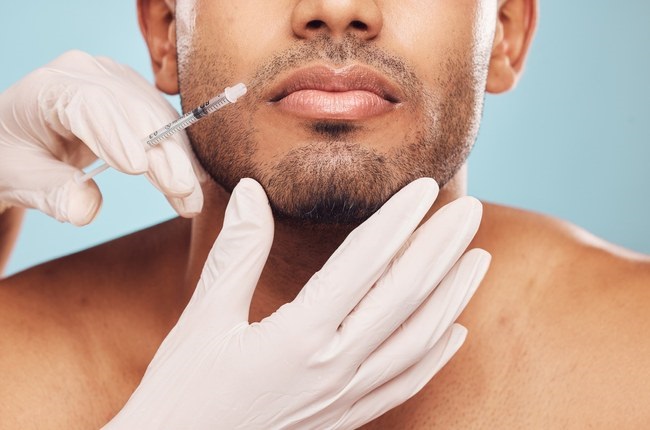
[ad_1]

Cosmetic injectables, which are relatively inexpensive, may cause more psychological harm to people already suffering from body image issues, say experts.
- The demand for cosmetic treatments has increased rapidly in the last several years.
- In many countries, record numbers of young people opt for Botox treatments for cosmetic reasons.
- Clinicians are calling for compulsory mental health screenings to stop vulnerable people from worsening any pre-existing psychological conditions.
The Botox business is booming: demand for these low-cost cosmetic injections has risen dramatically in the last few years. The market for it is estimated to grow even more between 2022 and 2030.
Not too long ago, a study by the American Society of Plastic Surgeons found that Botox injections became the most popular minimally invasive cosmetic procedure in 2020, a phenomenon the authors referred to as a “post-pandemic [Botox] boom”.
The cosmetic treatment is made from a neurotoxin called Botulinum toxin type A. In minute and refined doses, the toxin can be injected into desirable areas of the body to block the action of some nerves and fight off fine lines and angry creases, for example.
READ MORE | We embrace ageing, but is there such a thing as the ‘right age’ to get your first Botox injection?
The solution to line-free faces has become so popular that they’ve become part of social events – think Selling Sunset’s Christine Quinn’s ‘burgers and Botox’ parties. But it’s not just celebrities and the elite willing to pay to look their best.
Nicci Levy, owner of Alchemy 43, an aesthetics bar specialising in cosmetic microtreatments in Beverly Hills, noticed the rise in these low-cost cosmetics treatments and capitalised on the idea. She told Entrepreneur magazine in 2019: “People were spending thousands of dollars on these injections, but the experience was like going to the doctor to get a flu shot.”
Now, experts are calling for people seeking cosmetic injections, such as Botox, to undergo a compulsory mental health screening, according to the Guardian. They reason that they want to stop vulnerable people from worsening any pre-existing psychological conditions, such as body image issues.
Considering the increasing demand for these injections, they specifically want clinicians to be trained to conduct such psychological assessments.
Dr Toni Pikoos, a clinical psychologist who specialises in body image and cosmetic procedures, told the publication that injectables’ relatively low cost “can make them an even more dangerous space than surgery”.
Depending on which part of the body you want to target, the price can range from R1 500 to R7 000, board-certified reconstructive and plastic surgeon Dr Deon Weyers told True Love magazine in August.
Pikoos said that the treatments are seen as “quick and easy, low-risk” but that the research indicates body dysmorphia (BDD) and other mental health issues have a higher prevalence in people seeking non-surgical cosmetic procedures.
READ MORE | Jennifer Garner warns teenage daughters to be cautious when it comes to cosmetic procedures
She also told ABC News: “There is a smaller group of people who might have significant mental health issues or body dysmorphic disorder, where they actually don’t benefit from cosmetic treatment.
“It can feed into a cycle that tends to make them worse and more fixated on their appearance.”
Pikoos believes the move to training clinicians in doing mental health checks was a good idea.
Pre-treatment counselling rather than psychological assessment
For someone seeking cosmetic treatment, which has the potential to alter their body image, pre-treatment counselling is crucial, says registered counsellor and psychotherapist Nsamu Moonga.
Moonga tells News24: “The difficulty with the use of a term like ‘psychological assessment’ is that it has particular meanings … [but] pre-treatment counselling, on the other hand, is slow [and effective] enough to allow both the clinician – the administrator of the treatment – and the recipient of the treatment, to be clear on what they want and why they want that particular treatment.”
Pre-treatment counselling would include things like providing a patient with enough information on what the treatment entails, what risks are involved, if any, and whether there are any potential side effects so that the person is in a position to make a fully informed decision.
Once all that information has been made available and all the risk factors are taken into consideration by the patient, there is enough space for the patient to decide on whether to proceed with the treatment, says Moonga.
“And when they have looked at the material [and agree to continue with the treatment], only they will be responsible for any potential consequences of their choice.”
READ MORE | Sharon Stone was rejected by her younger ex-boyfriend after refusing to get Botox
While you cannot become physically addicted to Botox, it’s possible to become psychologically addicted to it. A 2017 study on the use of Botox in the US noted that some women suffered a “crack-like” addiction to the process as they attempted to top up previous treatments.
An older study, based on a survey of clients at 81 clinics, found more than 40% of patients who regularly used Botox “expressed a compulsive motive” for doing so, as per the Independent. Additionally, participants of the study who received five or more injections displayed more “addictive traits” than those who hadn’t.
Dr Carter Singh, who worked on the study, said: “Botox has a good safety profile, but it also has potentially addictive qualities.
Celebs who ditched Botox
Some celebrities have been refreshingly candid about their regret over having multiple cosmetic procedures in the past. Friends star Courtney Cox publicly commented about regretting her decision to have plastic surgery and Botox injections to try to prolong her youthful looks, YOU magazine reported.
“You walk out, and you don’t look so bad, and you think no one has noticed – it’s good. Then somebody tells you about another doctor … The next thing you know, you’re layered and layered and layered,” she said.
And after suffering a massive stroke, actor Sharon Stone said she had a different outlook on cosmetic procedures, as per News24.
“There were periods in the super fame when I got Botox and filler and stuff, and then I had this massive stroke and a nine-day brain haemorrhage and I had to have over 300 shots of Botox and filler to make the one side of my face come up again,” she said.
[ad_2]
Source link